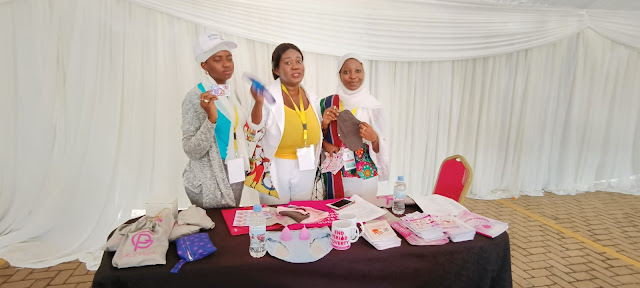Breast Cancer Slowdown Campaign with Sofonie Dala - Angola. Part 1
Breast Cancer Slowdown Campaign - Angola
Good evening ladies and gentlemen!
We welcome everyone to the most coveted program by women in the world!
"October is a very special month, because it is worldwide dedicated to the prevention and combat of breast cancer, a disease from which we can defend ourselves and fight early, in a very simple way, and which, if not identified early, kills about 2 million women around the world."
The campaign, developed by Sofonie Dala in Angola, will offer hope to women "who are part of the risk group, and who otherwise would not have the means to resort to a specialized assessment. With this campaign we want girls and women to "protect themselves and be ambassadors for the prevention of breast cancer with their families, friends and in their communities.
YOU DON`T HAVE TO FACE IT ALONE.
WE ARE STRONGER TOGETHER!
My name is Sofonie Dala!
We are launching our campaign, Breast Cancer Slowdown. This campaign aims to honor women affected by breast cancer, raise awareness of prevention and early diagnosis, as well as support research in this area. With the motto "YOU DON´T HAVE TO FACE IT ALONE", this movement intends to "sensitize Angolan women to the importance of early diagnosis in breast cancer prevention".
What are the Symptoms of Breast Cancer?
- New lump in the breast or underarm (armpit).
- Thickening or swelling of part of the breast.
- Irritation or dimpling of breast skin.
- Redness or flaky skin in the nipple area or the breast.
- Pulling in of the nipple or pain in the nipple area.
Although breast cancer is often painless, it is important not to ignore any signs or symptoms that could be due to breast cancer. Some people may describe the pain as a burning sensation.
To do a breast self-examination:
- Remove all your clothes above the waist. Lie down.
- Use the pads of your three middle fingers—not your fingertips.
- Use the middle fingers of your left hand to check your right breast.
- Use three different levels of pressure to feel all of your breast tissue.
Showcasing awareness interviews - Testimonial
Good afternoon!
How are you?
I'm fine thanks!
Please introduce yourself.
I am Josefa Pedro.
OK Josefa, thank you so much for being with us!
Could you tell us how breast cancer has affected your life and the life of your family?
It was a very difficult thing for us. My mother has always been a very dynamic woman, having to discover this disease at 41 years of age, as she was young, this was very difficult.
So I had to walk with her, follow the whole process, and it's something very exhausting, not only for the person who has the disease but for the people close to her as well.
How long did your mother carry this disease?
We had intensive treatment for a year. we did the consultations, then the medical operation was performed, and she spent 3 to 6 months undergoing chemotherapy.
When was breast cancer discovered in your mother?
This disease was discovered in 2019, between June - July. As soon as we discovered the cancer, we immediately went to the oncology center at the Maria Pia hospital, where we started the treatment.
How is her condition now?
She is currently doing well, she continues to undergo the treatment but on the basis of pills. Every 6 months she has a check up to ensure that no other abnormalities have developed in her body.
What is the appeal you would give to other girls facing this disease, and for those who are shy to ask for help?
First of all, women must self-examine themselves.
For those like me who already have a case of this in their family, from 25 years of age onwards, they should start having a mammogram, to find out if there is an indication. When the cancer is in the early stage it is still possible to treat, but unfortunately some women only discover it in the advanced stage when it is too late to do anything.
Was your mother's tumor removed?
Yes, thank God!
Preventing is the best way to fight breast cancer!
According to figures from the Angolan Institute for Cancer Control, about 300 new cases of breast cancer are diagnosed in Angola every year. "For lack of information, many women arrive at hospitals too late and most of the patients, in fertile age, end up dying with the disease, leaving the families destitute."
Donate
There are a number of ways to support those affected by breast cancer. Whether helping the community as a whole or donating in honor of or in memory of a loved one, each donation helps sustain our mission to educate the community and fight to end breast cancer.
Your gift means we can bring hope to cancer patients. Together we are fighting cancer smarter, better and harder than we ever have before. Thank you for your support.



Comments
Post a Comment